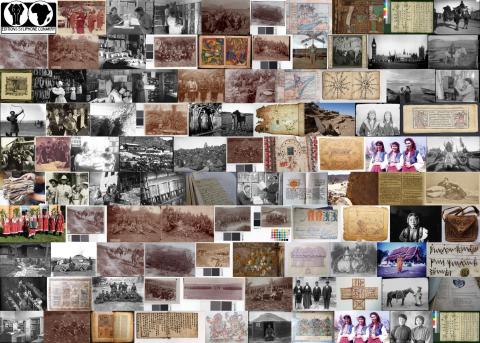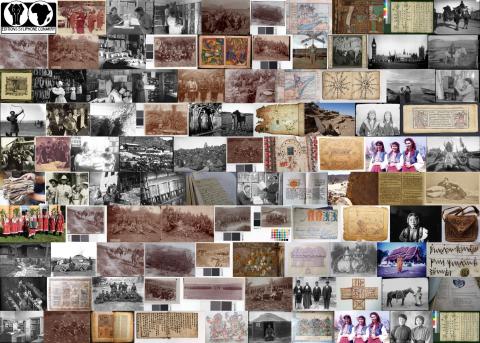Aims and objectives
This project aims to preserve Native Administration records which were generated between 1891 and 1964 by Native Authorities (traditional chiefs) in Malawi, formerly Nyasaland. The records represent a rich history of Malawi from the colonial period through the transition up to self-rule. At first the country was known as Nyasaland which was a British protectorate proclaimed in 1891, then briefly changed to British Central African Protectorate from 1893 to 1907, before reverting to its former name of Nyasaland. It became part of the Federation of Rhodesia and Nyasaland from 1953 to 1963. After dissolution of the Federation, the country became independent in 1964. Prior to independence, the Colonial Government introduced Native Authorities in Nyasaland as a way of involving the local people in the governance process through their own traditional institutions that were incorporated in the colonial administrative set-up. The introduction of Native Authorities meant that native chiefs became part of Government administration. As such, in the course of undertaking government business, the chiefs created, received, and maintained a lot of administrative records.
Prior to British colonialism, Malawi was a predominantly oral society where everything was transacted and captured orally. The establishment of Native Authorities marked an historic transition as traditional leaders were required to conduct and capture official business on paper. The Native Administration records are therefore immensely unique and historical as they portray the interaction between the literate Western culture and oral African culture and the subsequent triumph of literacy over illiteracy in Malawi. The records are a lasting legacy of the impact of colonialism on the people of Malawi and for this reason, the Native Administrative records need to be rescued from destruction and professionally preserved in the National Archives of Malawi for wider public access.
From July to September 2011, the National Archives of Malawi carried out a pilot project EAP427 where records rooms in 32 traditional authorities in the northern region of Malawi were inspected to confirm whether traditional chiefs are still keeping the records and to assess the condition of such records. The results of the survey established that there are significant volumes of vital records relating to the native administration between 1891 and 1964. These records are not replicated nor found anywhere else except in the individual native authorities country-wide and none of them have been transferred to the National Archives. The Native Administration records are regarded as personal property inherited by successive chiefs over the past century. Some of the records sampled during the survey include correspondence (in both vernacular and English languages), diaries, photographs, tax, and court records. The survey also revealed that the records in question are very delicate and vulnerable to decay as they are kept under very poor storage conditions mostly in chiefs’ houses and courts (which sometimes leak during rainy seasons) and in some cases the records are almost destroyed by termites. The termite attacks coupled with the fragility of the records due to their old age make the records even more vulnerable to total destruction. To prevent further deterioration, and to secure the documentary heritage contained in these unique and historical records, the National Archives of Malawi is undertaking this major project to further identify and asses the nature and volume of Native Administration records in Malawi. The project will digitise and re-locate the most endangered records from the Native Authorities to the National Archives of Malawi.
The project targets 60 chiefs from 27 districts in Malawi. It is expected that an estimated volume of 80 cubic feet of rare and irreplaceable Native Administration records will be identified and relocated to the National Archives of Malawi for digital and physical preservation for wider public access. Approximately 20,000 records will be digitised. During the preliminary survey it was established that many traditional chiefs who own these important collections have no objection to relinquishing them. This is because they understand the knowledge value of the collections, but realise that they do not have the capacity and appropriate facilities to take care of the records. The absence of these records in the National Archives of Malawi has created an historical gap in the public archives and, as part of Malawi’s documentary heritage, the Native Administration records need to be identified, collected, organised, conserved and digitised.
Once these records are organised and digitised the National Archives will undertake awareness programmes to enable the public to know the existence of these digitised records.
Outcomes
The project was successful in digitising Native Authority records generated during the colonial period, from 1891-1964. Historical records that were deteriorating in chiefs’ houses and offices have been relocated to the Historical Manuscripts repository in the National Archives of Malawi, and will be made accessible to researchers, scholars and the general public. Approximately 11,500 pages have been digitised and include the establishment of native rule since 1933; Native authority orders; Native authority court records; chieftainships; tax records; and game records.
The records copied by this project have been catalogued as:
- EAP607/1 Northern Region Native Authorities [1942-1963]
- EAP607/2 Eastern Region Native Authorities [1944-1964]
- EAP607/3 Central Region Native Authorities [1935-1964]
- EAP607/4 Southern Region Native Authorities [1937-1964]




